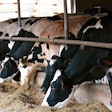As we write this column at Halloween, Election Day is less than a week away. By the time you read this, the election results will be more than a month old. One thing is certain; whoever won will need to address quickly some important issues facing the poultry and chicken industry.
At least one item will take center stage almost immediately, and that is the Environmental Protection Agency’s pending decision on the Arkansas and North Carolina request (supported by thousands of comments from turkey and chicken producers) for a waiver of the Renewable Fuel Standard. EPA officials have indicated they will make a decision by the statutory deadline of November 13. If so, that’s something else that will have occurred before the article is printed, but there also is a chance EPA could miss the deadline by a week or two. Regardless of EPA’s decision, though, it will be incumbent on Congress and the administration to take a comprehensive look at the Renewable Fuel Standard and consider making fundamental changes to the ethanol mandate.
In 2012, the Renewable Fuel Standard required 13.2 billion gallons of corn-based ethanol to be blended into gasoline. Next year, without any intervention, the amount is likely to be close to 14 billion gallons. The historic drought has brought about a clear crisis in the availability of corn, and it will have taken at least four months for the government agency in charge of the Renewable Fuel Standard to respond officially to the crisis. In the meantime, leaders of other government agencies are being cheerleaders for the ethanol industry, and no one who needs corn or ethanol really knows what to expect going forward. In 2012, we’ve seen how inflexible Renewable Fuel Standard is in responding to disasters and how the law no longer reflects market realities.
Other major issues for Congress or the executive branch to deal with:
Lingering questions about the GIPSA marketing rule. In 2011, Congress held the worst aspects of the rule in abeyance, and USDA itself trimmed other excesses. Still, uncertainty remains about the final scope of the USDA effort.
The new poultry inspection system. USDA earlier in 2012 posed a sweeping modernization of the poultry inspection process, one that will enhance the safety of the food supply. The department hopefully will publish a final rule before the year is out.
Antibiotic resistance. FDA’s Center for Veterinary Medicine has proposed what appears to be a common-sense approach for managing the future of antibiotic use in animal agriculture. But, many in Congress want to micromanage the process and ignore sound science along the way. Hopefully, the new Congress will show restraint, and FDA’s final guidance on “production” antibiotics will fulfill the promise of the agency’s initial proposals.
The outcome of elections does matter. The poultry industry needs decision-makers who are honest brokers seeking to thoroughly understand all the ramifications of their policy choices. But, the poultry industry can help keep whoever wins honest by continuing the grassroots efforts that have brought us to the brink of success on a number of the policy issues discussed above.














